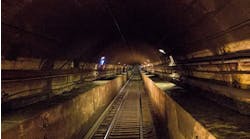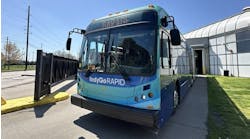U.S. Secretary of Transportation Anthony Foxx announced in Omaha Sept. 15 a Transportation Investment Generation Economic Recovery (TIGER) grant award for the Central Omaha Bus Rapid Transit Project (BRT). Metro is one of 72 grants awarded through the highly competitive TIGER 2014 grant program for which the U.S. Department of Transportation received 797 applications from 49 states, U.S. territories and the District of Columbia.
Secretary Foxx was joined by Metro’s Executive Director Curt Simon, Omaha Mayor Jean Stothert and other state and local officials in making the announcement. “As uncertainty about the future of long-term federal funding continues, this round of TIGER will be a shot in the arm for these innovative, job-creating and quality of life-enhancing projects,” said Foxx. “This TIGER investment will improve transit service on Omaha’s busiest transit route, contributing to the economic redevelopment of the Midtown Crossing area, and creating thousands of jobs now and long into the future. For every project we select, however, we must turn dozens more away – projects that could be getting done if Congress passed the GROW AMERICA Act, which would double the funding available for TIGER and growing the number of projects we could support.”
“The TIGER grant will help construct an eight-mile BRT system offering enhanced urban arterial transit service with upgraded passenger amenities for convenience and comfort and infrastructure improvements to improve speed and reliability,” said Simon. These improvements include 14 station pairs that will be served by eight state-of-the-art BRT vehicles. The corridor serves major retail, the University of Nebraska at Omaha, three major medical complexes, all of Omaha’s five Fortune 500 companies, and the dense, mixed use Midtown Crossing urban area.
Local bus service operating on this alignment carries more than 11 percent of Metro’s daily passengers. Construction of the BRT system will shorten travel along the corridor by 15.7 minutes, improving mobility and connectivity along the corridor. BRT implementation will improve the level of transit service in the community, reducing daily vehicle miles traveled (VMT) by 4,244,500 VMT per year. Sixteen percent of households within one-quarter mile of the proposed BRT route do not have access to a vehicle and will benefit directly from increased access to jobs, activity centers, and medical facilities. Construction of the BRT is projected to generate an additional $450 million in development, serve as a catalyst for infill development, and create 1,200 new long-term jobs.


